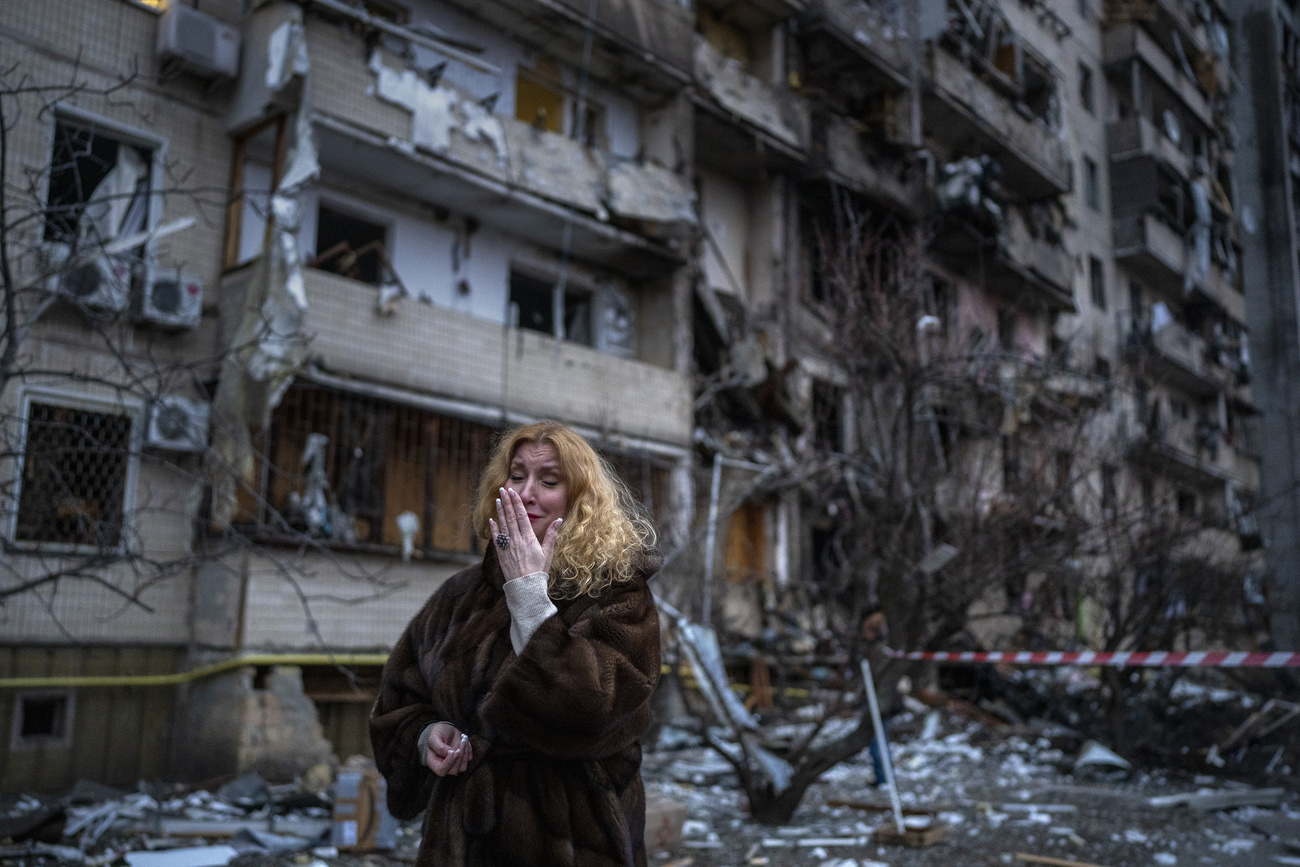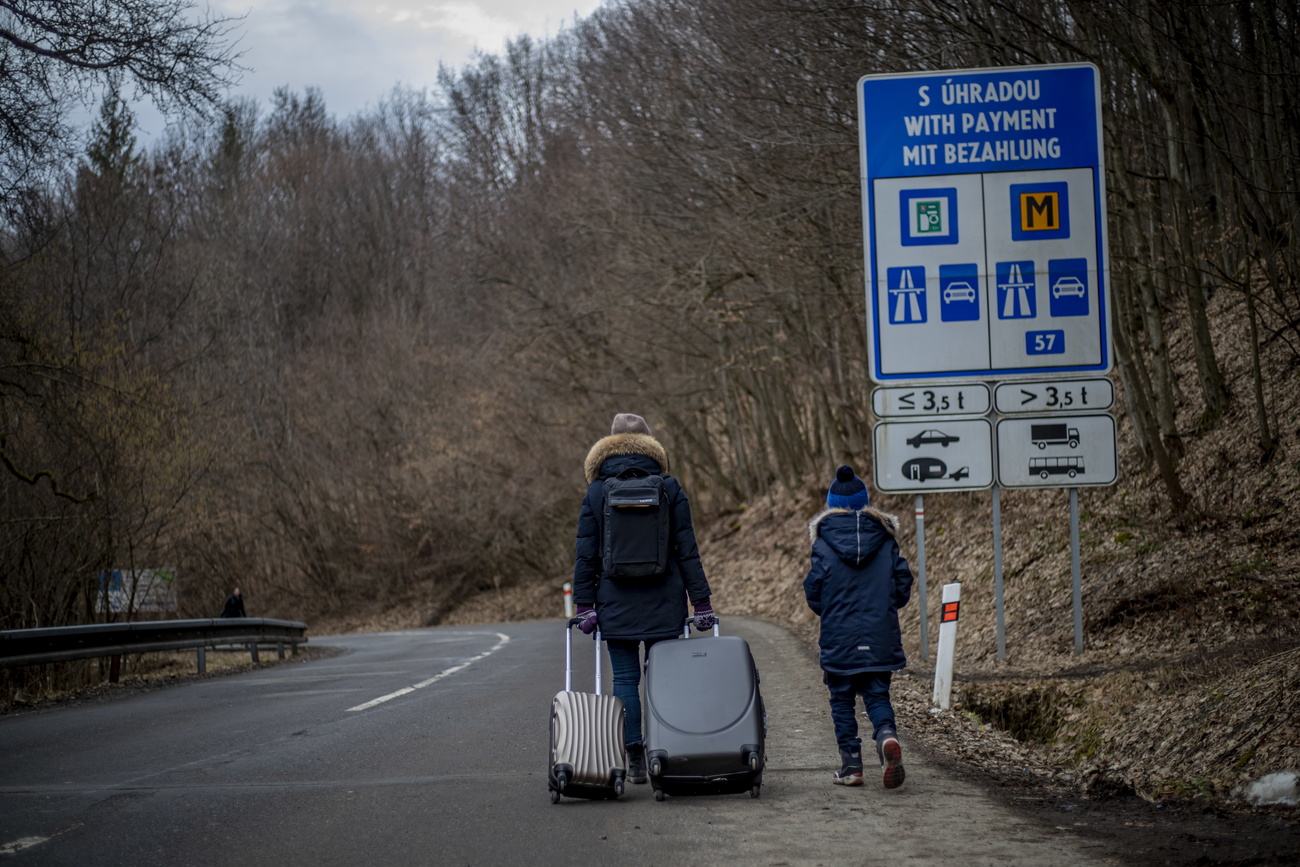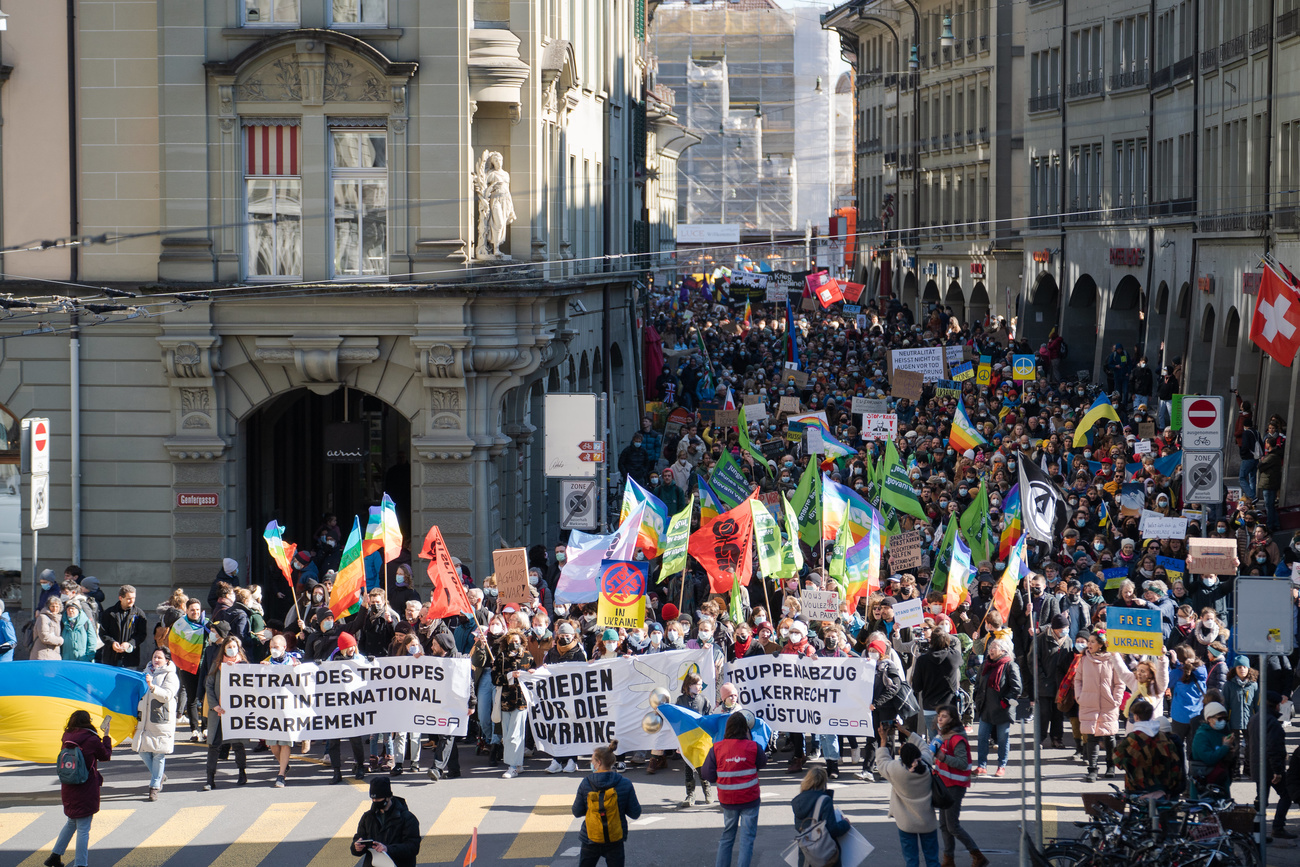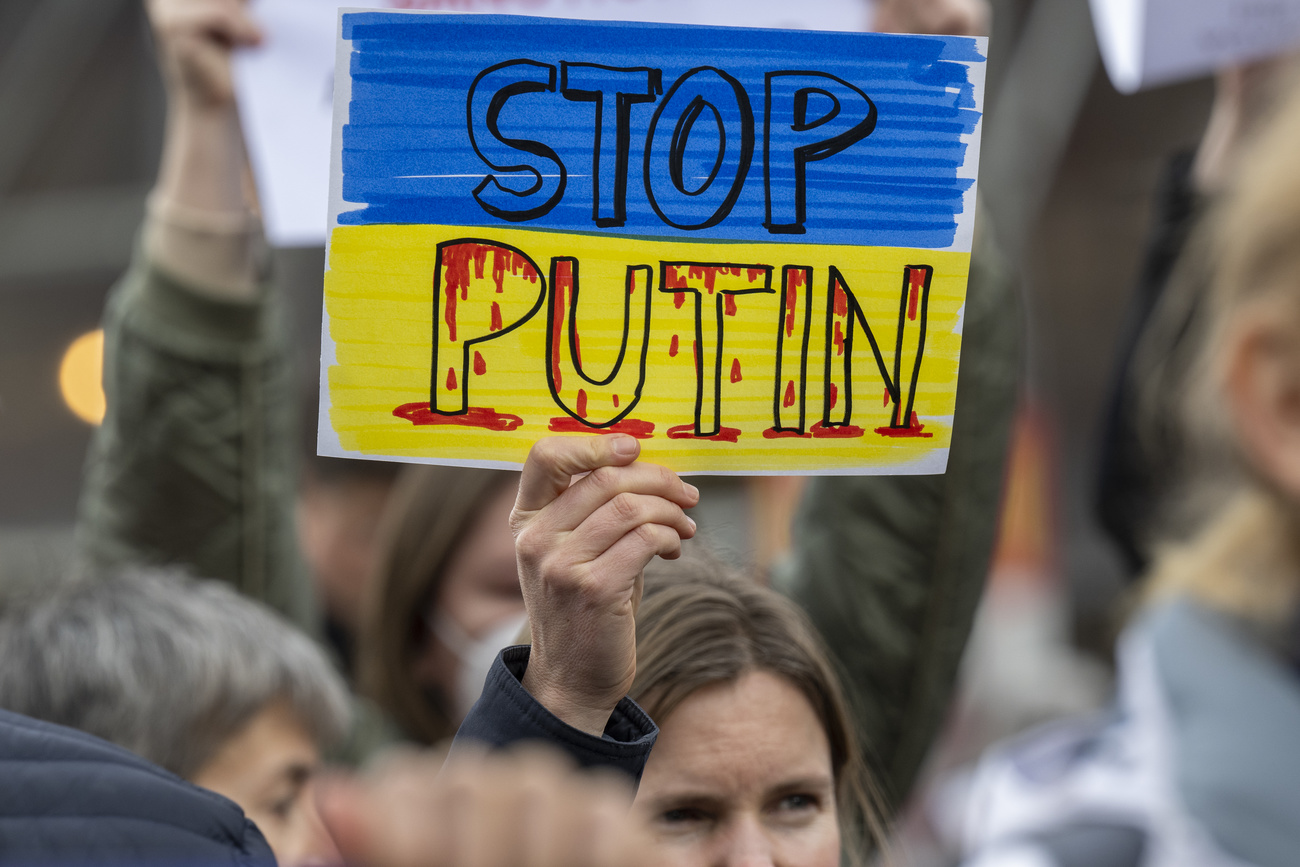
Defence minister unsure other countries would help Switzerland if attacked

Swiss Defence Minister Viola Amherd says neutral Switzerland must ensure its own security, since there’s no guarantee defence alliance NATO would help non-member Switzerland in the event of a Russian attack.
“We could ask other countries for support if attacked, but whether anyone helps us is an open question,” Amherd told the NZZ am Sonntagin an interviewExternal link. “Under certain circumstances we would have to rely on solidarity. That is why it is so important for us to do our part and protect Swiss airspace with our own resources.”
On Thursday Russian President Vladimir Putin launched what he called a special military operation, ignoring Western warnings and saying the “neo-Nazis” ruling Ukraine threatened Russia’s security.
As of 5pm on Saturday there had been at least 240 civilian casualties, including at least 64 dead, the UN Office for the Coordination of Humanitarian Affairs (OCHA) said in a status report. It added the actual figures were likely to be “considerably higher”.

More
Up to 2,000 Ukrainians could seek refuge in Switzerland
Asked whether she believed the war could spread further westwards, Amherd said Ukraine bordered countries that were members of NATO. If Russia attacked one of these countries, the situation would change considerably, since NATO would have to defend its members, she said.
“We would then be close to a world war. However, I consider the use of nuclear weapons unlikely even in such a case,” she said. But even in its current state the war in Ukraine is a “great burden and threat to neighbouring countries”.
Should people in Switzerland be afraid? “Owing to the physical distance to Ukraine, an immediate armed attack on Switzerland is unlikely,” she said. “Besides, we’re surrounded by NATO member states, which protects us to a certain extent. But as a non-NATO member, we can’t automatically count on help.”

More
Ukraine: Up to 20,000 people march in Bern for peace
Cyberattacks
Amherd is convinced that the war will lead to remilitarisation in Europe. Russia has already re-armed, and in the European NATO countries the discussion about an increase in arms spending has been going on for some time, she said.
“It’s well-known that most countries do not meet the NATO target of spending 2% of gross domestic product on defence. Many countries have a lot of catching up to do. The war in Ukraine will lead to a greater awareness that states must be able to defend themselves militarily against an attack.”
In her opinion, cyberattacks are the most obvious danger posed by Russia to Switzerland.
“I’m thinking, for example, of information gathering or influence campaigns on social media. You can see a lot of pro-Russian comments on Twitter, Facebook and in the comment columns of online newspapers at the moment. Not all of them were penned by ordinary citizens, they were probably controlled. Such influence campaigns have increased in recent weeks. This is a danger for the formation of opinion.”
Amherd said the authorities want to counter such manipulation by providing correct information and rectifying disinformation. “If there really are bots at work that automatically post comments on the net, these comments must be deleted. The intelligence service is watching this development closely.”

More
Switzerland faces pressure to toughen sanctions on Russia

In compliance with the JTI standards
More: SWI swissinfo.ch certified by the Journalism Trust Initiative


























You can find an overview of ongoing debates with our journalists here . Please join us!
If you want to start a conversation about a topic raised in this article or want to report factual errors, email us at english@swissinfo.ch.